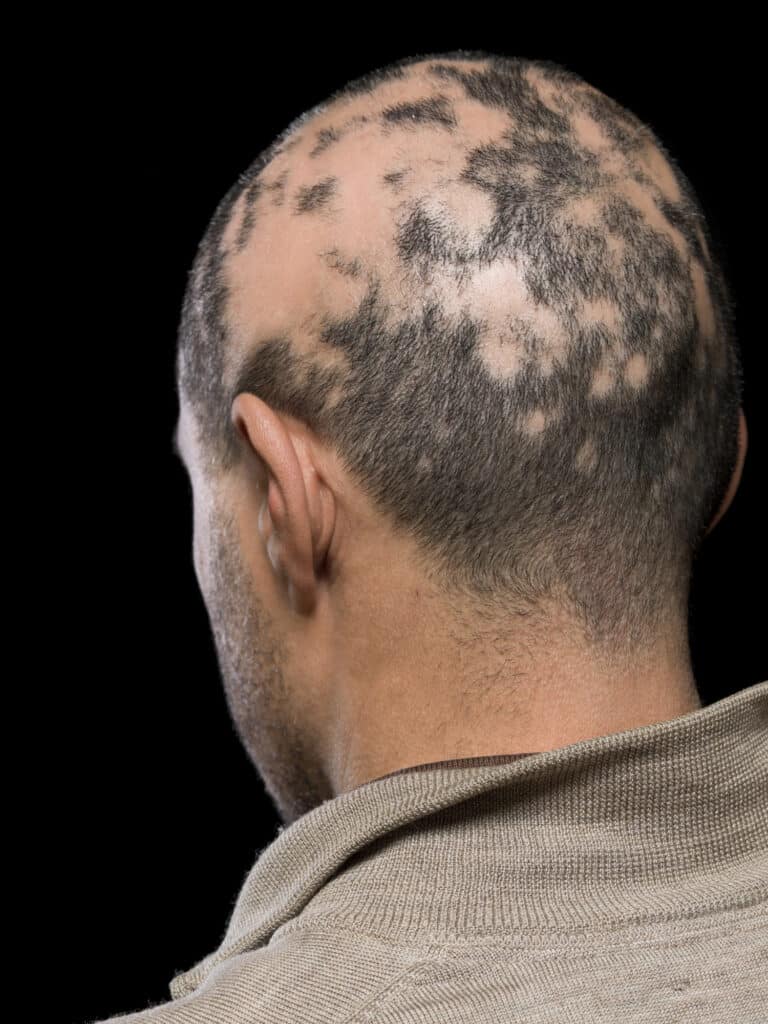Alopecia Areata is an autoimmune disease that causes the body to attack the hair follicles, and sometimes the nails, mistaking them for a foreign object in the body. Some other terms you may hear include “alopecia barbae,” which involves hair loss on the beard, “alopecia ophiasis,” which involves the loss of strips or patches on the scalp, “alopecia totalis,” a loss of all the hair on the scalp, and “alopecia universalis” which affects the hair on the entire body and scalp. This condition can affect any age, gender, or skin type.

REGROWTH
While hair loss in any capacity can feel very tolling, the hair does have the potential to grow back. For some patients, such as those who only experience small patches of loss, it regrows quickly and never reoccurs. For others, though, it may fall out, regrow, then fall out again, which is referred to as a relapse in the condition.
RISKS
Risks of alopecia increase when one has a close relative with a history of the condition, psoriasis, thyroid disease, or vitiligo, have been treated with certain cancer drugs, or have a history of prolonged cigarette smoking.
DIAGNOSIS
Diagnosing alopecia usually involves meeting with a dermatology provider. It’s important to distinguish fallout (such as from stress, postpartum hormones, or withdrawals) from alopecia or to look out for any underlying conditions, such as thyroid disease. This may involve a few key inspection methods: bloodwork, physical examination through a dermatoscope (magnifying the follicle to see what is occurring in the area), a biopsy of some hairs, and a discussion of your medical and family history.
TREATMENT
Treatment for alopecia areata will look different for everyone based on the patient’s age, severity of the condition, location of the hair loss, and timespan of the symptoms. Options for treatment may include topical medications/medicated shampoos, steroid injections, topical steroid creams, contact immunotherapy and more.
The best way to determine if you are living with alopecia and to receive care is to come in for a medical exam with any of our dermatology providers. Our office prioritizes you and your health and is happy to see you within the week or same day! Schedule your appointment today by calling (815) 229-9333 ext. 1.
